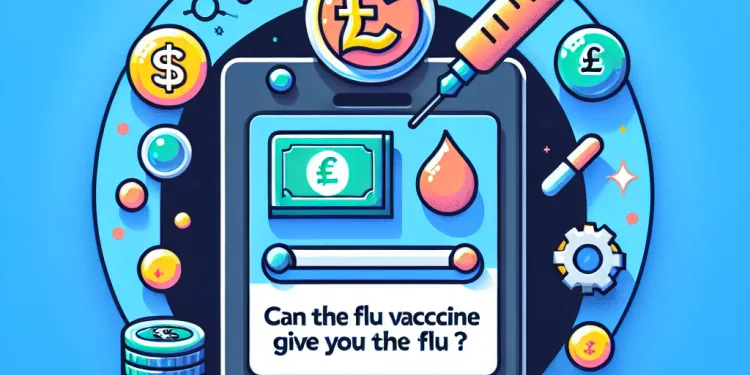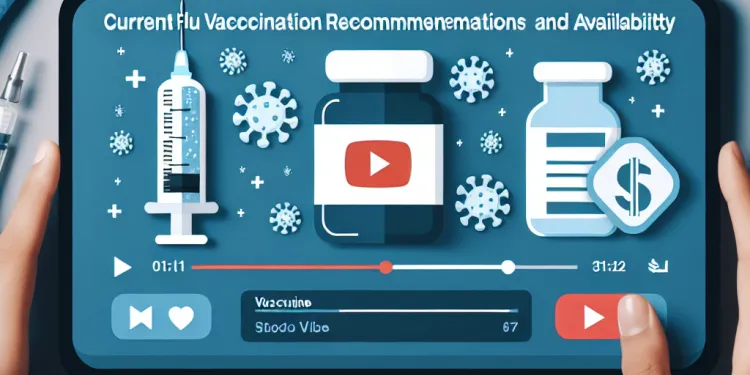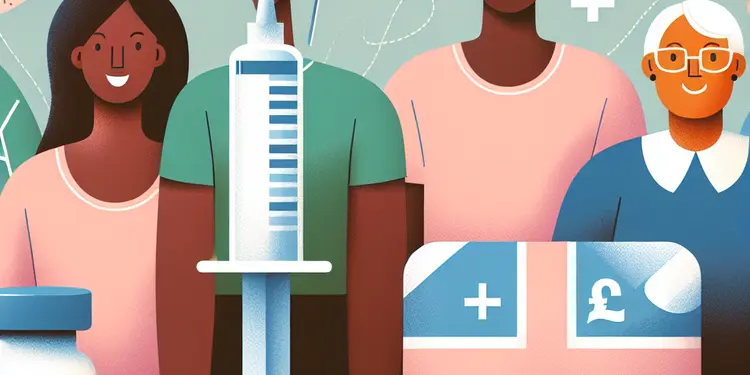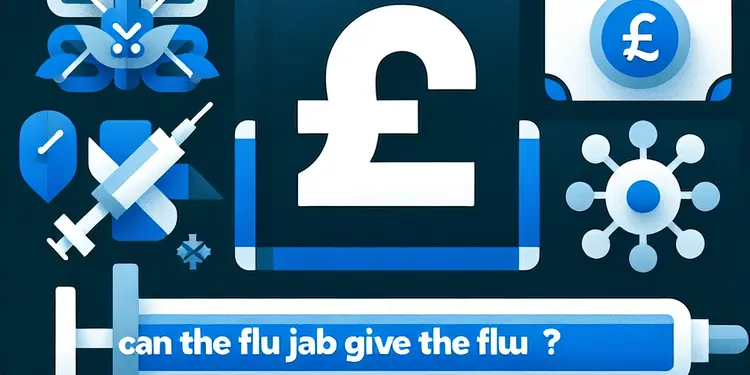Find Help
More Items From Ergsy search
-

Flu vaccinations for people with a learning disability
Relevance: 100%
-

What is a learning disability?
Relevance: 61%
-

Can the flu vaccine give me the flu?
Relevance: 51%
-

Can the flu vaccine give you the flu?
Relevance: 50%
-

The NHS Long Term Plan for learning disability and autism
Relevance: 50%
-

How effective is the flu vaccine?
Relevance: 49%
-

Is the flu vaccine free for everyone in the UK?
Relevance: 49%
-

Who should get the flu vaccine in the UK?
Relevance: 48%
-

Can Super Flu be prevented by vaccines?
Relevance: 47%
-

Current Flu Vaccination Recommendations and Availability
Relevance: 47%
-

Where can I get the flu vaccine?
Relevance: 47%
-

Accessing cervical screening with the right support for people with a learning disability
Relevance: 47%
-

How do I book an appointment for the flu vaccine?
Relevance: 47%
-

Are there any side effects to the flu vaccine?
Relevance: 46%
-

When is the best time to get the flu vaccine?
Relevance: 45%
-

Can pregnant women get the flu vaccine?
Relevance: 45%
-

What if I'm not eligible for a free flu vaccine, can I still get vaccinated?
Relevance: 45%
-

How important is it to get a flu vaccine in 2026?
Relevance: 45%
-

Use of reasonable adjustments to reduce health inequalities for people with a learning disability
Relevance: 44%
-

Can I still get the flu if I have been vaccinated?
Relevance: 44%
-
Does the flu vaccine protect against COVID-19?
Relevance: 44%
-

Transforming Care for people with Learning Disabilities and/ or Autism: Peter's Story
Relevance: 44%
-

Nationwide Flu Vaccination Campaign Targets Vulnerable Populations
Relevance: 44%
-

Can children receive the flu vaccine as a nasal spray?
Relevance: 44%
-

How long does it take for the flu vaccine to become effective?
Relevance: 43%
-

What if I have an egg allergy, can I still get the flu vaccine?
Relevance: 41%
-

Can the flu jab give me the flu?
Relevance: 40%
-

Can the flu jab give you the flu?
Relevance: 39%
-

Harshi’s learning disability annual health check and health action plan
Relevance: 38%
-

Is there a vaccine for H3N2?
Relevance: 38%
-

NHS-led Provider Collaboratives: improving mental health, learning disability and autism services
Relevance: 37%
-

Is the winter flu jab effective against all flu strains?
Relevance: 37%
-

Who should get the winter flu jab?
Relevance: 37%
-

Just the flu? | NHS
Relevance: 37%
-

Flu can be fatal
Relevance: 37%
-

What is the winter flu jab?
Relevance: 36%
-

Has Super Flu occurred in the past?
Relevance: 36%
-

What is Super Flu?
Relevance: 36%
-

How long does it take for the flu jab to become effective?
Relevance: 36%
-

Is the Super Flu contagious?
Relevance: 36%
Flu Vaccinations for People with a Learning Disability
What is the Flu?
The flu, or influenza, is a viral infection that affects the respiratory system. It can cause symptoms like fever, chills, sore throat, muscle aches, and fatigue. The flu can be more severe in people with weakened immune systems, including those with a learning disability.
Why is the Flu Vaccine Important?
The flu vaccine helps protect against the flu virus. People with learning disabilities may have other health conditions that make them more vulnerable to complications from the flu. Getting vaccinated reduces the risk of getting the flu and spreading it to others.
Who Should Get the Flu Vaccine?
In the UK, the flu vaccine is recommended for people with learning disabilities and their carers. It's important because people with learning disabilities might be at higher risk of severe illness from the flu.
How is the Flu Vaccine Given?
The flu vaccine is usually given as an injection in the arm. In some cases, it might be given as a nasal spray. The healthcare provider will decide the best method based on the individual's health and preferences.
Where to Get the Flu Vaccine?
You can get the flu vaccine at your GP surgery, some pharmacies, or during a special flu vaccination clinic. Your GP or local healthcare provider can give you more information on where to get vaccinated.
Are There Side Effects?
Most side effects of the flu vaccine are mild. They can include soreness at the injection site, a slight fever, and feeling tired. These side effects usually go away on their own after a few days. Serious side effects are rare.
How to Prepare for the Vaccination?
Wear loose clothing to make it easier to access your arm. If you are nervous, let the healthcare provider know. They can take extra steps to make the experience as comfortable as possible for you.
Support During Vaccination
If you have a learning disability, you can bring a carer or a family member with you to the appointment. They can help explain things and provide comfort during the vaccination.
Conclusion
Getting the flu vaccine is an important step in protecting yourself and others from the flu. If you have a learning disability, talk to your GP or healthcare provider about getting vaccinated. They can provide the support and information you need.
Flu Vaccinations for People with a Learning Disability
What is the Flu?
The flu is a virus that makes you sick. It can give you a fever, sore throat, and make you feel very tired. People with a learning disability can get sicker if they catch the flu.
Why is the Flu Vaccine Important?
The flu vaccine helps protect you from getting the flu. Some people with learning disabilities can get very sick from the flu. Getting the vaccine stops you from getting and spreading the flu.
Who Should Get the Flu Vaccine?
In the UK, people with learning disabilities should get the flu vaccine. This includes their carers too. It is important because they might get very sick if they catch the flu.
How is the Flu Vaccine Given?
The flu vaccine is a needle in your arm. Sometimes it is a spray in your nose. The doctor or nurse will choose the best way for you.
Where to Get the Flu Vaccine?
You can get the flu vaccine at your doctor’s office, some pharmacies, or at a special clinic. Ask your doctor where to go.
Are There Side Effects?
The flu vaccine might make your arm a little sore. You might get a slight fever or feel tired. These usually go away in a few days. Serious side effects are very rare.
How to Prepare for the Vaccination?
Wear a shirt you can easily pull up so the doctor can reach your arm. Tell the doctor if you are scared. They can help you feel better.
Support During Vaccination
You can bring someone like a carer or a family member with you when you get the vaccine. They can help explain what is happening and make you feel safe.
Conclusion
The flu vaccine helps keep you and others safe from the flu. Talk to your doctor about getting the flu vaccine. They can help and give you information.
Frequently Asked Questions
What is the flu vaccination?
The flu vaccination is an injection given to help protect people from the influenza virus, commonly known as the flu.
Why is the flu vaccination important for people with learning disabilities?
People with learning disabilities are more likely to have underlying health conditions, making them more susceptible to complications from the flu. The vaccination helps to protect them from these risks.
Is the flu vaccine safe for people with learning disabilities?
Yes, the flu vaccine is safe and is recommended for people with learning disabilities. It undergoes rigorous testing to ensure its safety and effectiveness.
Where can people with learning disabilities get their flu vaccine?
Flu vaccines are available at GP surgeries, pharmacies, and sometimes at community centres and schools.
What types of flu vaccines are available?
There are several types of flu vaccines, including the inactivated flu vaccine (injection) and the live attenuated flu vaccine (nasal spray). Your healthcare provider can advise on the best one for you.
How often should people with learning disabilities get the flu vaccine?
People with learning disabilities should get the flu vaccine every year, as the flu virus strains can change annually.
What are the possible side effects of the flu vaccine for people with learning disabilities?
Common side effects are usually mild and can include soreness at the injection site, a slight fever, and muscle aches. Severe side effects are rare.
Can the flu vaccine give someone the flu?
No, the flu vaccine cannot give you the flu. The injected flu vaccine contains inactivated virus, which cannot cause flu illness.
What should be done if someone with a learning disability is afraid of needles?
Talk to the healthcare provider about the fear. Strategies such as distraction, using a numbing cream, or considering the nasal spray vaccine might help.
Is it true that some people are eligible for a free flu vaccine?
Yes, people with certain health conditions, including those with learning disabilities, are eligible for a free flu vaccine under the NHS.
How effective is the flu vaccine for people with learning disabilities?
The effectiveness can vary, but even if the vaccine does not prevent the flu, it can reduce the severity of symptoms and the risk of complications.
What should I do if I think someone with learning disabilities is having a severe reaction to the flu vaccine?
Severe reactions are rare. If you suspect a serious reaction, seek medical attention immediately by calling 999 or going to the nearest A&E.
Can people with learning disabilities get the flu vaccine if they are not feeling well?
It's best to wait until they are fully recovered from any acute illness. Consult with a healthcare provider for specific advice.
Does the flu vaccine prevent all types of flu?
The flu vaccine is designed to protect against the most common and severe strains, but it may not prevent all types of flu. It still offers the best protection available.
Can other family members of a person with learning disabilities get the flu vaccine?
Yes, family members and carers are also encouraged to get the flu vaccine to help protect themselves and reduce the risk of spreading the virus.
What is the flu vaccination?
The flu vaccination is a shot that helps keep you from getting the flu. The flu is an illness that can make you feel very sick.
The shot helps your body stay strong against the flu.
If you get the flu shot, it is less likely that you will get the flu.
It is a good idea to get the flu shot every year.
If you do not like needles, you can talk to someone you trust about it.
The flu shot is a special medicine that helps keep people safe from getting the flu. The flu is a sickness caused by a tiny germ called a virus.
Why is the flu shot important for people with learning disabilities?
The flu shot helps keep you from getting very sick. People who take the flu shot can stay healthy and feel good.
If you have a learning disability, it is important to get the flu shot. This is because the flu can make you very sick. The flu shot helps protect your body.
Ask someone you trust to help you remember to get the flu shot every year. A doctor or nurse can give you the shot.
People with learning difficulties may get sick more easily. This is because they can have other health problems. The flu can make them very ill, so the flu shot helps keep them safe.
Is the flu shot safe for people with learning disabilities?
Yes, the flu shot is safe for people with learning disabilities. It helps to keep you from getting sick with the flu.
If you have questions or feel worried, talk to your doctor or a nurse. They can help you understand more.
If you find reading hard, ask someone you trust to read with you, or listen to information online or from a video.
Yes, the flu shot is safe. It is good for people with learning difficulties to have it. The flu shot is tested a lot to make sure it is safe and works well.
Where can people who find learning hard get their flu shot?
If you find learning tricky, you can still get a flu shot. Here are some easy ways to do it:
- Ask your doctor: Your doctor can give you the flu shot and tell you where to go.
- Visit a pharmacy: Some big stores have places that give flu shots. You can go there too.
- Community health centers: These are places that help keep you healthy. They often give flu shots.
It might help to use these tips:
- Bring someone with you. They can help you feel calm.
- Write down any questions you have before you go.
- Tell the nurse or doctor if you're scared. They can help.
You can get a flu shot at the doctor's office, the pharmacy, or sometimes at community centers and schools.
What kinds of flu shots can you get?
Here are some tips to help understand:
- Ask someone to read with you.
- Look at pictures or videos about flu shots.
- Use apps that read text out loud.
There are different kinds of flu shots. One kind is a shot in your arm, and another kind is a spray for your nose. Your doctor can tell you which one is best for you.
How often should people with learning disabilities get the flu shot?
People with learning disabilities should get a flu shot every year. The flu shot helps protect you from getting sick with the flu. It is important to get it every year because the flu virus changes. Ask a doctor or nurse for help if you need it.
People who have a hard time learning should get the flu shot every year. This is because the flu germs can be different each year.
What might happen after people with learning difficulties get the flu vaccine?
Sometimes, after you get the flu injection, you might not feel good. Here are some things that can happen:
- Your arm where you got the needle might hurt.
- You might feel tired.
- You could get a headache.
- Your muscles might feel sore.
- You might have a fever and feel hot.
If you do not feel well, tell someone you trust. They can help you.
You can use tools like easy charts or drawing pictures to show how you feel.
Remember, most people feel better after a few days.
Some side effects might happen. They are usually not too bad. You might get a sore arm where you got the needle, feel a little hot, or have tired muscles. Bad side effects are very rare.
Can the flu shot make you sick with the flu?
No, the flu shot cannot give you the flu. It helps protect you from getting sick.
Here are some tips to make it easier to understand:
- Ask someone to read it with you.
- Watch a video about how vaccines work.
- Write down any questions you have and ask a doctor.
No, the flu shot cannot make you sick with the flu. The flu shot has a dead virus in it, so it cannot make you sick.
What to do if someone with learning difficulties is scared of needles?
Here are some steps to help:
- Talk to them: Speak in a gentle voice. Explain what a needle is and why it is needed.
- Show things: Use pictures or videos to show what will happen. This can make it less scary.
- Breathing: Teach them to breathe slowly. This can help them feel calm.
- Bring a friend: Maybe a friend or a family member can come. It can help them feel safe.
- Reward: Promise a treat after. Like a sticker or a small toy.
If you need help, ask a doctor or nurse for advice.
Talk to the doctor or nurse about being scared. Try things like:
- Thinking about something else.
- Using a special cream that stops pain.
- Asking about the nose spray vaccine.
Can some people get the flu shot for free?
Yes, some people can get a flu shot without paying. If you think you might get a free flu shot, you can: - Ask your doctor or nurse - Look at online health websites - Ask a pharmacist These people can help you find out if you can get the flu shot for free.Yes, people with some health problems, like learning disabilities, can get a free flu shot from the NHS.
How well does the flu vaccine work for people with learning disabilities?
The flu vaccine helps protect people from getting sick with the flu.
People with learning disabilities can also get the flu shot to help keep them safe.
The vaccine might not stop every flu, but it helps a lot to make you safer and less sick.
If you are worried about the flu or the vaccine, talk to a doctor or nurse.
Using simple words, pictures, or asking a friend to help can make it easier to understand.
Sometimes the flu shot works better than other times. But even if it doesn't stop you from getting the flu, it can help make the sickness milder. It can also help stop big problems.
It's a good idea to get the flu shot to stay safer. You can also ask someone you trust to help you understand or arrange reminders to get it.
What to do if someone with learning disabilities has a bad reaction to the flu shot
If you think someone with learning disabilities is having a bad reaction to the flu shot, here’s what you can do:
- Stay calm and try to comfort the person.
- Check for trouble breathing, hives, or swelling. These could be signs of a bad reaction.
- Call for help right away. You can dial emergency services for quick help.
- Tell the medical helpers about the flu shot and the reaction.
- If you know any calming techniques, use them to help the person stay relaxed.
It’s good to know what to do in emergencies so you can help quickly and safely.
Bad reactions don't happen often. If you think someone is having a bad reaction, get help fast. Call 999 or go to the hospital right away.
You can use pictures, ask someone to read with you, or use audio books to help understand this.
Can people with learning problems get the flu shot if they are sick?
Yes, if you have learning problems, you can still get the flu shot even if you feel a little sick.
But if you feel very sick, it’s good to talk to a doctor first.
They can help you decide what to do.
You can also ask a friend or family member for help.
Wait until they are all better after being sick. Talk to a doctor or nurse to know what to do next.
Does the flu shot stop all kinds of flu?
The flu shot helps keep you safe from getting sick with the flu. But it doesn't stop every kind of flu. It stops the most common types.
If you have questions, you can ask a doctor or nurse. They can help you understand more.
The flu vaccine helps protect you from bad flu germs. It can't stop all types of flu, but it does its best to keep you safe.
Can family members of someone with learning difficulties get the flu shot?
If someone in your family has learning difficulties, other family members can get a flu shot too. This helps keep everyone healthy.
Here are some ways to help understand this:
- Talk to a doctor or nurse. They can explain more.
- Use pictures or videos about the flu shot.
- Ask questions if something is hard to understand.
Yes, family members and carers should get the flu shot. It helps keep them safe and stops the flu from spreading.
Useful Links
This website offers general information and is not a substitute for professional advice.
Always seek guidance from qualified professionals.
If you have any medical concerns or need urgent help, contact a healthcare professional or emergency services immediately.
Some of this content was generated with AI assistance. We’ve done our best to keep it accurate, helpful, and human-friendly.
- Ergsy carfully checks the information in the videos we provide here.
- Videos shown by Youtube after a video has completed, have NOT been reviewed by ERGSY.
- To view, click the arrow in centre of video.
- Most of the videos you find here will have subtitles and/or closed captions available.
- You may need to turn these on, and choose your preferred language.
- Go to the video you'd like to watch.
- If closed captions (CC) are available, settings will be visible on the bottom right of the video player.
- To turn on Captions, click settings .
- To turn off Captions, click settings again.
More Items From Ergsy search
-

Flu vaccinations for people with a learning disability
Relevance: 100%
-

What is a learning disability?
Relevance: 61%
-

Can the flu vaccine give me the flu?
Relevance: 51%
-

Can the flu vaccine give you the flu?
Relevance: 50%
-

The NHS Long Term Plan for learning disability and autism
Relevance: 50%
-

How effective is the flu vaccine?
Relevance: 49%
-

Is the flu vaccine free for everyone in the UK?
Relevance: 49%
-

Who should get the flu vaccine in the UK?
Relevance: 48%
-

Can Super Flu be prevented by vaccines?
Relevance: 47%
-

Current Flu Vaccination Recommendations and Availability
Relevance: 47%
-

Where can I get the flu vaccine?
Relevance: 47%
-

Accessing cervical screening with the right support for people with a learning disability
Relevance: 47%
-

How do I book an appointment for the flu vaccine?
Relevance: 47%
-

Are there any side effects to the flu vaccine?
Relevance: 46%
-

When is the best time to get the flu vaccine?
Relevance: 45%
-

Can pregnant women get the flu vaccine?
Relevance: 45%
-

What if I'm not eligible for a free flu vaccine, can I still get vaccinated?
Relevance: 45%
-

How important is it to get a flu vaccine in 2026?
Relevance: 45%
-

Use of reasonable adjustments to reduce health inequalities for people with a learning disability
Relevance: 44%
-

Can I still get the flu if I have been vaccinated?
Relevance: 44%
-
Does the flu vaccine protect against COVID-19?
Relevance: 44%
-

Transforming Care for people with Learning Disabilities and/ or Autism: Peter's Story
Relevance: 44%
-

Nationwide Flu Vaccination Campaign Targets Vulnerable Populations
Relevance: 44%
-

Can children receive the flu vaccine as a nasal spray?
Relevance: 44%
-

How long does it take for the flu vaccine to become effective?
Relevance: 43%
-

What if I have an egg allergy, can I still get the flu vaccine?
Relevance: 41%
-

Can the flu jab give me the flu?
Relevance: 40%
-

Can the flu jab give you the flu?
Relevance: 39%
-

Harshi’s learning disability annual health check and health action plan
Relevance: 38%
-

Is there a vaccine for H3N2?
Relevance: 38%
-

NHS-led Provider Collaboratives: improving mental health, learning disability and autism services
Relevance: 37%
-

Is the winter flu jab effective against all flu strains?
Relevance: 37%
-

Who should get the winter flu jab?
Relevance: 37%
-

Just the flu? | NHS
Relevance: 37%
-

Flu can be fatal
Relevance: 37%
-

What is the winter flu jab?
Relevance: 36%
-

Has Super Flu occurred in the past?
Relevance: 36%
-

What is Super Flu?
Relevance: 36%
-

How long does it take for the flu jab to become effective?
Relevance: 36%
-

Is the Super Flu contagious?
Relevance: 36%


